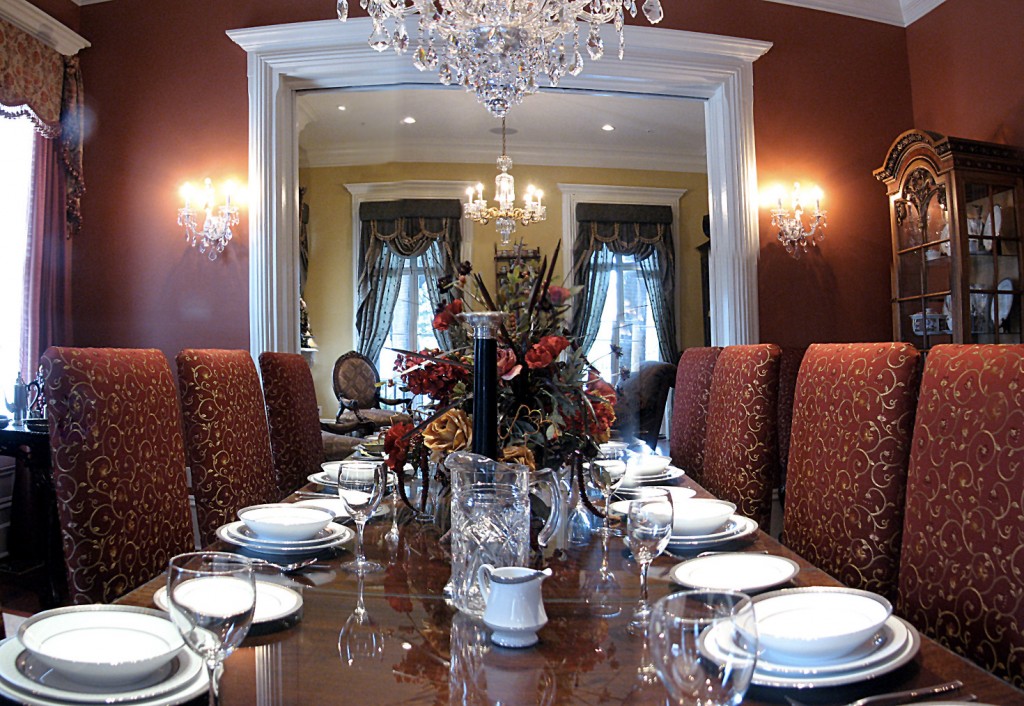Come to the Feast
Twenty-Eighth Sunday in Ordinary Time
“On this mountain, the Lord of hosts / will provide for all peoples / a feast of rich food and choice wines” (Isaiah 25:6). That’s what Isaiah tells us today. God is putting together a huge party for “all peoples,” to “wipe away / the tears from every face” (Isaiah 25:8). And what does Jesus tell us? The reign of God, he says, “may be likened to a king who gave a wedding feast for his son” (Matthew 22:2). When the guests didn’t come, the king had his servants go out “into the main roads and invite to the feast whomever you find” (Matthew 22:9). We are called to deliver that invitation. One of the themes woven into today’s liturgy is that of divine generosity. Asleep to reality, people often think they have “earned” what they have. In our better moments, though, we know that all our gifts—even the spiritual gifts—come through God’s generosity. Our vocation is to invite people, to remind them the tickets aren’t for sale. We can only show up and say thank you.

Reflecting on God’s Word
As Catholics we are invited to “come to the feast” at significant moments in our lives. Baptisms, First Communions, marriages, ordinations, and funeral rites are all commonly celebrated within the feast of the Eucharist. The clothes we wear—from the baptismal garment to the funeral pall, from fancy wedding garb to simple white albs—reflect our baptismal commitment to be faithful to Christ until we come to the eternal heavenly feast that our Eucharistic celebrations anticipate. All are invited to come to the feast. All are invited to dress in the garment of Christ. Not all respond to the invitation. It has often been asked what would happen if, some Sunday morning, praying as we always do for Christ to come again, Christ actually did return. Would we come to his feast? Would we prefer our small private gathering to the huge mass of people we don’t really want to know? Would we be found wearing the garment of faithfulness we were given in baptism? Where would we be “on that day”?
Living God’s Word
Over the past few weeks the scriptures have provided us with a feast of images of God’s abundant mercy. Today’s image of the heavenly banquet both completes the picture of God’s generosity and shifts our attention to our response to God’s generous invitation.
Readings for the Week
Monday: Gal 4:22-24, 26-27, 31 — 5:1; Ps 113:1b-5a, 6-7; Lk 11:29-32
Tuesday: Gal 5:1-6; Ps 119:41, 43-45, 47-48; Lk 11:37-41
Wednesday: Gal 5:18-25; Ps 1:1-4, 6; Lk 11:42-46
Thursday: Eph 1:1-10; Ps 98:1-6; Lk 11:47-54
Friday: Eph 1:11-14; Ps 33:1-2, 4-5, 12-13; Lk 12:1-7
Saturday: 2 Tm 4:10-17b; Ps 145:10-13, 17-18; Lk 10:1-9
Sunday: Is 45:1, 4-6; Ps 96:1, 3-5, 7-10; 1 Thes 1:1-5b; Mt 22:15-21
Saints & Special Observances
Sunday: Twenty-eighth Sunday in Ordinary Time
Monday: Columbus Day; Canadian Thanksgiving Day
Tuesday: St. Callistus I
Wednesday: St. Teresa of Jesus
Thursday: St. Hedwig; St. Margaret Mary Alacoque; National Boss Day
Friday: St. Ignatius of Antioch
Saturday: St. Luke
Treasures from Our Tradition
The confessional is a familiar setting in literature and drama. Everyone from Doestoevsky and Shakespeare down the line to Seinfeld has used the sacrament to tragic or comic effect or to reveal aspects of character otherwise hidden. All of this theater, from world classics to slapstick, has had a numbing effect on our own expectations, and has skewed how the culture looks at us and our struggle with sin and forgiveness, hope and healing. Yet the artists are on to something. The reconciliation chapel is a place where hearts are laid bare, where honesty is the watchword, and people confess their deepest needs. It is also a place of rebirth, or at least realignment. It is, like the baptismal font, a place where something dies, and where something else is born. Today, although literature has barely caught up, the place is usually not the dark and gloomy cabinet of old; rather it is a chapel that speaks of peace, serenity, and the comfort of a welcome home. People in one parish were astonished recently to see their children skipping with delight as they left the place of their first confession. We have to wait a bit for world literature to catch up with this reality, but at least we can experience the joy of penance, the thrill of a new beginning, the assurance of God’s love.
